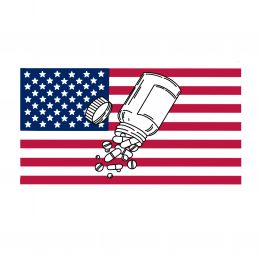
George Patton once said, “The soldier is the Army. No army is better than its soldiers.” This kind of thinking, where we consider the worst conditions of those who serve this country and tackle them with purpose, is what needs to be applied to problems faced by veterans today. Trauma, depression, loss of purpose and isolation are common causes that push veterans deeper and deeper into addiction and substance abuse. It is the responsibility of the U.S. government to recognize this as a genuine and serious issue and take action accordingly to ensure the integrity of its armed forces.
The numbers speak for themselves, and they are not painting a pleasant picture at all. According to the latest numbers from the Department of Veterans Affairs medical facilities, one in 10 veterans who return to civilian life after service report a case of substance abuse. The statistics show that of these people, eight in 10 suffer from alcoholism, nearly one in three suffer from illegal drug abuse and close to one in 10 suffer from a combination of both.
These numbers point toward the improperly addressed mental health issues among veterans. It is vital to know that, while pain management is a motivating force, these statistics emerge chiefly because of underlying psychological challenges faced by soldiers on duty. Of those who served in Afghanistan and Iraq and reported a case of substance abuse, between 82 and 93 percent of them also reported a mental disorder such as anxiety or PTSD gained during deployment.
These are challenges already difficult for the average civilian to overcome, but, for veterans, they can be brick walls impossible to breach. According to numbers, half of all U.S. veterans feel that they do not fit into society after they return from service. Instead, these people may find themselves isolated, lonely and removed from any meaningful social connections with the outside world.
Consider how severely such circumstances may fuel addiction and depression, and the severity of the problem at hand becomes much more apparent. The duties of organizations like the Veterans Affairs Department have come a long way in the past century to recognize and treat issues such as PTSD, but its enduring key problems are ineffective bureaucracy and inconsistent and inadequate care for medical needs. These issues become especially relevant in light of cases of death related to suicide and COVID-19.
These issues are not new, but they can potentially leave a lasting legacy for the U.S. Armed Forces. The issues faced by soldiers returning from operations many thousands of miles away are marked by horror stories of despair, hopelessness, lack of direction, and sadly as a predictable outcome, mental issues and suicide. An environment that turns young and able men into lifeless beings cannot be the reputation of an institution dedicated to defense.
Lack of attention to the lives of soldiers after their service is a key cause behind the ongoing recruitment issues. This naturally means that the U.S. Armed Forces, operating on the basis of volunteers rather than conscription, must address the issue of post-service treatment and emphasize social welfare to make the military a trustworthy institution. After all, political issues stemming from foreign involvements have been making more and more headlines, and the United States’ currently bellicose attitude toward its neighbors is making young Americans question the worth of a life as a soldier. The issue of substance abuse among those who return from service will only further damage the reputation of the military and spur further disillusionment.
The well-being of soldiers, both in the line of duty and beyond, has to be the undebatable priority of the military. It is unrealistic to assume that the reintroduction of the draft will do any good to pump up the numbers; only through genuine welfare reform and professional organization of government resources can this issue be tackled.
Issues of social isolation are at the heart of substance abuse — that is the area the emphasis should be on. The department must focus on developing ways to provide opportunities to find a sense of belonging among veterans. From a social perspective, the career opportunities provided to veterans should guarantee not only employment but also socialization and a sense of identity among peers.
Furthermore, as substance abuse depends on despair as its fuel, veterans must have more common and clear access to treat their mental health problems. The department, as well as foundations and associations dedicated to veterans, must serve not as “institutions” simply looking after people but as places where people go to find their community and sense of purpose in life.
No great power can exist without an honorable military to defend it, and the United States is no exception. The integrity and sustainability of its operations require the government to see these overall trends as a social problem — not merely a medical one — as well as a systemic one, rather than about access to firearms on duty. Conflicts yet to be fought might create the hopeless veterans of tomorrow, or worse still, the veterans who suffer today can put people away from service altogether. For the future of its size and strength, in a system based on volunteers, the military must carry out comprehensive methods to defend its members past and present against addiction, abuse and depression.
Deniz Gulay is a sophomore double-majoring in history and Russian.
Views expressed in the opinions pages represent the opinions of the columnists. The only piece that represents the view of the Pipe Dream Editorial Board is the staff editorial.


